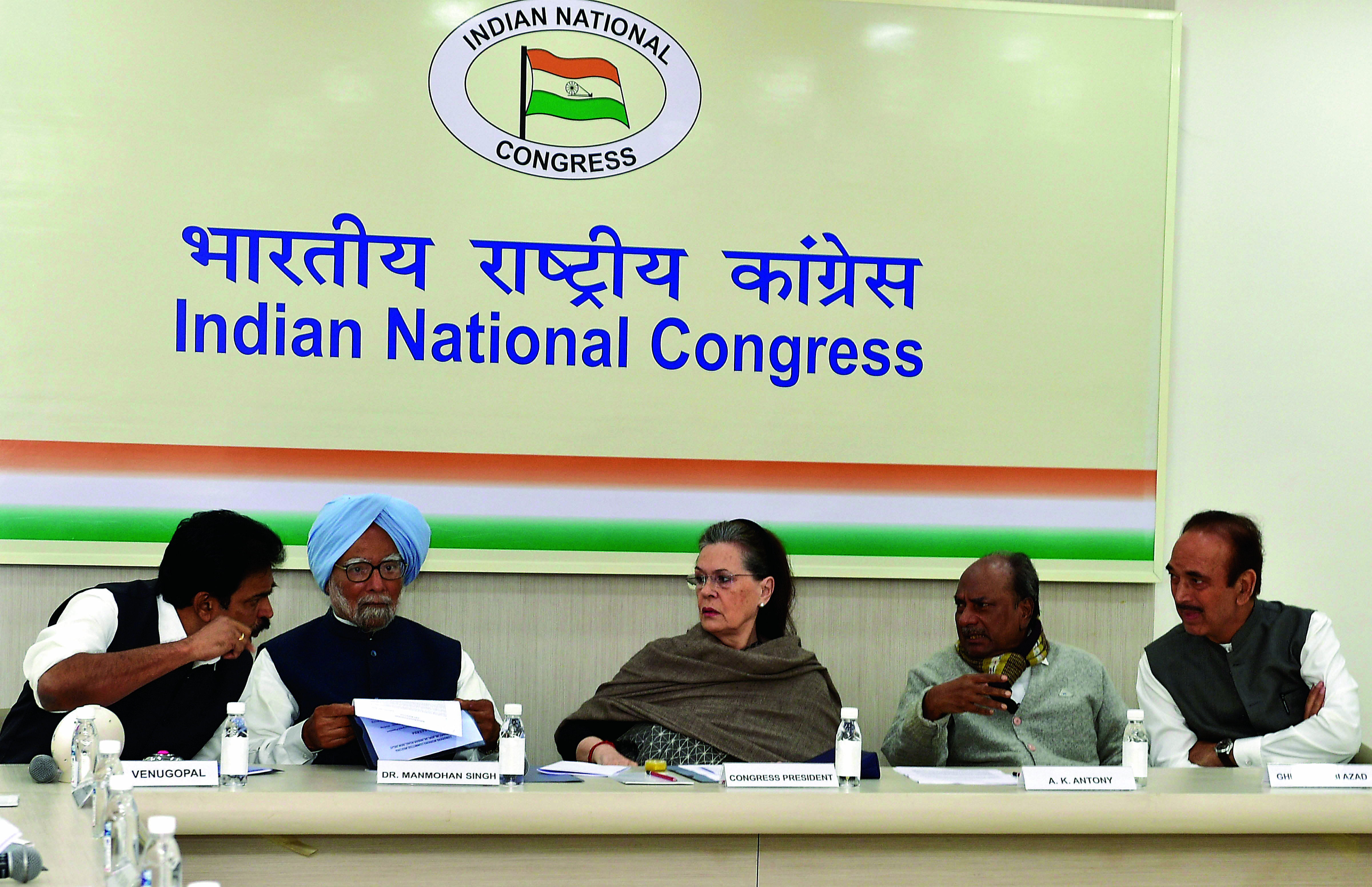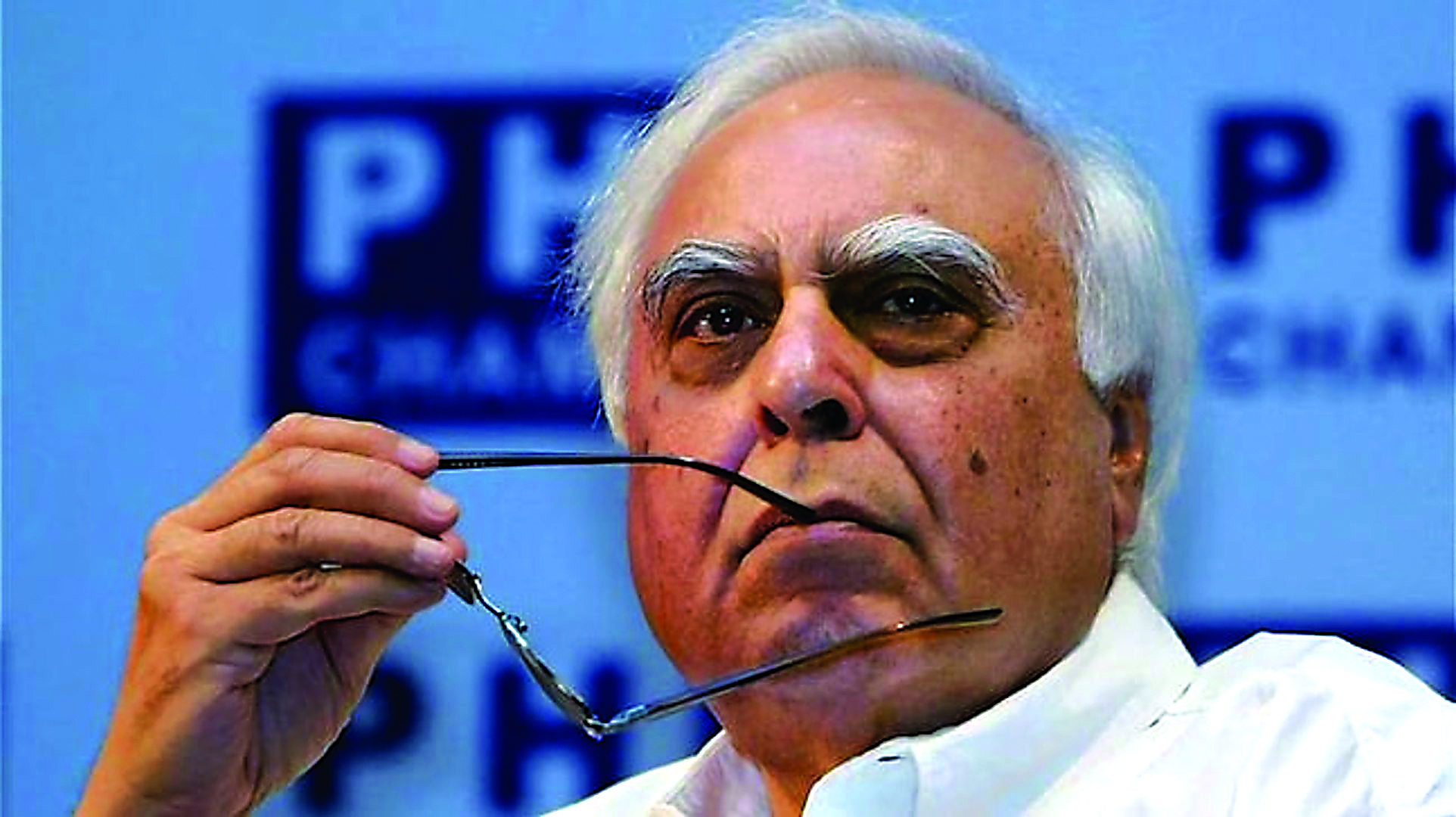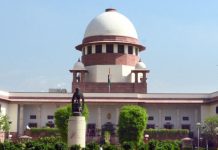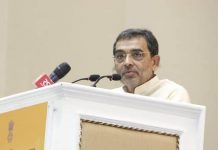 When former Union Minister and Congress leader, Kapil Sibal tweeted, “We are yet to hear on recent polls. Maybe Congress leadership thinks it should be business as usual”, it was clear that all is not well with the grand old party which is again at the crossroads.
When former Union Minister and Congress leader, Kapil Sibal tweeted, “We are yet to hear on recent polls. Maybe Congress leadership thinks it should be business as usual”, it was clear that all is not well with the grand old party which is again at the crossroads.
To add insult to injury, Karti P Chidambaram, Congress MP retweeted what Kapil Sibal had said and added, “It’s time we introspect, ideate, consult and act”. In the recently concluded Bihar election, the opposition had won 110 seats, a dozen short of the majority mark in the 243-member assembly. Tejashwi Yadav’s Rashtriya Janata Dal (RJD) emerged as the largest party but the Congress, which contested 70 seats and won only 19, is seen to have dragged the opposition’s tally down. Even the smaller Left parties pulled their weight.
As if this was not enough, further embarrassment came from a senior RJD leader’s sarcastic comments. Shivanand Tiwari, the RJD leader called Congress a “drag party” which had fielded 70 candidates in Bihar but didn’t hold even 70 public rallies. he went on to reportedly say, “Elections were in full swing here and Rahul Gandhi was having a picnic at Priyanka ji’s house in Shimla hill station. Is the party run like that?”
The latest to criticize Congress is CPI (ML) which wants the grand old party to be more realistic. Describing the Congress as a “big letdown” for the Grand Alliance, which failed to form government in Bihar, CPI (ML) Liberation general secretary Dipankar Bhattacharya hoped the Congress party would adopt a “more realistic” approach during its seat-sharing talks with the Left Front in West Bengal.
Bhattacharya said he was sure that the grand old party, too, would be reviewing its poor show in Bihar and be reasonable while sealing a seat-sharing deal in politically sensitive Bengal, where the saffron brigade is making all efforts to clinch power. Citing the poll results in Bihar, where Congress, as a partner of the Grand Alliance, fared poorly, Bhattacharya said in an interview, “The party shouldn’t be in the driver’s seat in the CPM-Congress alliance in West Bengal”.
Visibly shaken by the infighting, Congress President, Sonia Gandhi formed three committees. K.C.Venugopal, General Secretary, AICC announced committees on Economic Affairs, Foreign Affairs and National Security. Significantly, four members of the dissenting camp who were among those who had circulated a letter demanding reforms in Congress party, have been included in these three committees. The three committees have been set up to keep her informed on matters relating to national security, foreign affairs and the economy.
 Announced just before Sonia Gandhi left for Goa to escape Delhi pollution, the appointments are being seen as a move to ward off further public embarrassment. Former Prime Minister Dr. Manmohan Singh is a member of all three committees. The committee on economic affairs includes former Finance Minister P Chidambaram. The second committee (on foreign affairs) has both Anand Sharma and Shashi Tharoor, and Ghulam Nabi Azad and Veerappa Moily have been named to the third. P Chidambaram, Rajya Sabha MP from Maharashtra, had extended support to Kapil Sibal and had taken on Congress leadership on “ground presence” in the wake of the Bihar election and bypolls in other states.
Announced just before Sonia Gandhi left for Goa to escape Delhi pollution, the appointments are being seen as a move to ward off further public embarrassment. Former Prime Minister Dr. Manmohan Singh is a member of all three committees. The committee on economic affairs includes former Finance Minister P Chidambaram. The second committee (on foreign affairs) has both Anand Sharma and Shashi Tharoor, and Ghulam Nabi Azad and Veerappa Moily have been named to the third. P Chidambaram, Rajya Sabha MP from Maharashtra, had extended support to Kapil Sibal and had taken on Congress leadership on “ground presence” in the wake of the Bihar election and bypolls in other states.
Anand Sharma, a former minister had also criticized the party decision to stay away from regional comprehensive economic partnership – a free trade deal promoted by China. The Congress had been the first to red-flag India’s potential membership. Both Anand Sharma and Kapil Sibal were among the 23 Congress leaders who had written a letter to party high command and the letter was leaked to the media, causing much upset among the Gandhi family members.
The letter called for sweeping reforms, introspection and a full time president. After this at the Congress Working Committee meeting, Sonia Gandhi had offered to resign before being persuaded to remain as interim chief, with an AICC meeting to be called in six months. A committee was set up to examine the dissenting leaders’ grievances.
Kapil Sibal after the Bihar election called for “experienced minds, experienced hands and those who understand political realities” to revive the organization, saying the “time for introspection is over”. He reportedly said, “We need to do several things at several levels – organizationally, articulation in the media in whatever form, putting up people who the people want to listen to, providing an active, thoughtful leadership who can articulate with a lot of circumspection”.
The senior Congress leader reportedly said, “First we have to have a conversation; with experienced minds, experienced hands, with people who understand the political realities of India, people who know what and how to articulate in the media, people who know how to get people to listen to them… We need alliances, we need to reach out to people. We cannot anymore expect people to come to us. We are not the kind of force that we used to be. We need to reach out to others by those who are experienced in this business. But in order to do that we have to have a conversation. We are yet to hear from the Congress party their views on our recent performance in Bihar and in the by-elections. May be they think all is well and that it should be business as usual.”
 Though, Kapil Sibal emphatically said, “I am a Congressman and will remain a Congressman and hope and pray that the Congress provides the alternative to a power structure which has subverted all the values that the nation stands for”, Congress leader in Lok Sabha and CWC member, Adhir Ranjan Chowdhury slammed party colleague Kapil Sibal over his Bihar poll debacle introspection remark, saying those unhappy with the party’s functioning are free to leave instead of embarrassing it in public. Chowdhury stung Sibal for “giving sermons from AC rooms” and said disgruntled members may join other parties or form their own outfits. Wondering why Sibal was not seen campaigning for the Congress during the Bihar elections, the party’s West Bengal chief said, “Speaking without doing anything doesn’t mean introspection.” “Kapil Sibal could have raised the issues inside a party forum instead of making such embarrassing remarks in public. He is a senior leader and has access to the party’s top brass. He added, “Those who are unhappy with the functioning of the party have the freedom to form a new party or join one if they feel that the Congress is not the right place for them”.
Though, Kapil Sibal emphatically said, “I am a Congressman and will remain a Congressman and hope and pray that the Congress provides the alternative to a power structure which has subverted all the values that the nation stands for”, Congress leader in Lok Sabha and CWC member, Adhir Ranjan Chowdhury slammed party colleague Kapil Sibal over his Bihar poll debacle introspection remark, saying those unhappy with the party’s functioning are free to leave instead of embarrassing it in public. Chowdhury stung Sibal for “giving sermons from AC rooms” and said disgruntled members may join other parties or form their own outfits. Wondering why Sibal was not seen campaigning for the Congress during the Bihar elections, the party’s West Bengal chief said, “Speaking without doing anything doesn’t mean introspection.” “Kapil Sibal could have raised the issues inside a party forum instead of making such embarrassing remarks in public. He is a senior leader and has access to the party’s top brass. He added, “Those who are unhappy with the functioning of the party have the freedom to form a new party or join one if they feel that the Congress is not the right place for them”.
Bihar election results and results to by-elections may be the reasons for the recent crisis in Congress party, but the trigger was the letter written by 23 senior Congress leaders. We reproduce the text of the letter which says, “We the undersigned, most of whom have spent a lifetime in the Congress, take this opportunity to convey our concerns over the prevailing political atmosphere and views on the organizational affairs of the Congress Party. India is, today, facing the gravest Political, Social and Economic challenges in its history since independence. The core values of our Constitution are under a sustained assault. The communal and divisive agenda of BJP and its affiliates are dominating the political narrative. It is in conflict with the very idea of inclusive India bequeathed to us by Mahatma Gandhi and the founding fathers of the Republic.
An environment of fear and insecurity has engulfed the country. Congress has a duty to rise to the challenge. It must reassure the people that, it will defend and secure their fundamental rights. This can be done only by a revitalised and resolute Congress Party, that unites the progressive and democratic forces. The country is also facing a serious Social and Economic crisis. Massive youth unemployment, farmers distress and economic recession have pushed a large number of our citizens to the margins. These challenges have been aggravated by the “Corona Pandemic” leading to economic shut down with millions of workers across sectors, losing jobs, wages and incomes. The distress of the poor and vulnerable, especially the migrant labour, needs urgent redressal. The Congress Party is required to deliberate on these challenges and come up with a comprehensive response outlining its vision and policy recommendations.
The situation on the borders in India’s neighbourhood and military standoff with China, is a matter of grave concern. The drift in India’s Foreign Policy, straining of relations with neighbouring countries with whom we have historically shared goodwill and friendly relations, needs a serious reflection and course correction. As the oldest Political Party of the country that led the freedom movement, laid the foundations of India’s development and building of a modern nation-State, the Congress Party must take an informed position on Foreign Policy, Defence and National Security matters.
We have witnessed a steady decline of the Congress Party reflected in successive electoral verdicts in States and General Elections in 2014 and 2019. Reasons are manifold and need to be immediately identified. Otherwise, the Congress Party will find itself marginalized, both in the States, which is already apparent, as well as at the national level. The erosion of support base and, in particular, losing the confidence of the youth, is a matter of serious concern. In the last two national elections, India had added 18.7 crores 1s’ time voters — 10.15 crores in 2014 and 8.55 crores in 2019. The youth voted overwhelmingly for Modi and the BJP. The vote share of the BJP sharply increased from 7.84 crores in 2009 to 17.6 crores in 2014 and to 22.9 crores in 2019. In contrast, Congress lost its share of 1.23 crore of the votes polled in 2009. We have marginally crossed the 2009 numbers in the last LokSabha elections. Even after 14 months of the 2019 electoral verdict, the Congress Party has not undertaken any honest introspection to analyse the reasons for its continued decline.
In order to stem the decline, we have taken upon ourselves to be open and frank so that the Congress Party’s future, which presently is at stake, is not jeopardized any further. The uncertainty over the leadership and the drift have demoralised the Congress workers and further weakened the Party. There has been an erosion of the support base with leaders and functionaries leaving the Party in a number of States. The CWC is not effectively guiding the Party to mobilise public opinion against the divisive agenda and anti-people politics of the BJP Government. At present, its meetings are merely episodic and reactive to contemporary developments instead of being a deliberative body for setting the national agenda and for policy initiatives.
The meetings of the CPP over the years have been reduced to the customary address of CPP leader and obituary references. The past practice of discussion on issues has been discontinued. That is required especially now when the Party is in Opposition. We have also seen, over the past many years, that the appointments of PCC Presidents and office bearers and DCC Presidents are unduly delayed. Leaders who command respect and acceptability in the State are not appointed in time and when appointed as PCC Chiefs are not given the freedom to make organizational decisions. PCCs and the District Level Committees, are not inclusive and representative of the demographics of the State. The PCCs are not given any functional autonomy. There is also very little accountability when leadership fails.
Youth and students
 The Congress Party has historically nurtured Leadership and encouraged infusion of fresh blood. Younger leaders had risen from the ranks coming from the NSUI and Youth Congress. These leaders had ideological clarity and commitment. A blend of experience of seniors and energy of youth made the Congress strong and vibrant. In recent years, the institutional process of merit-based and consensus backed selection has been disrupted. Introduction of elections in the cadre feeding organisations NSUI and IYC has created conflict and division. Resource-rich individuals or those backed by powerful patrons captured these organisations. This blocked the progress of younger leaders from an ordinary background with an ideological commitment to the Party of their services, resulting in the weakening of the Frontal Organisations.
The Congress Party has historically nurtured Leadership and encouraged infusion of fresh blood. Younger leaders had risen from the ranks coming from the NSUI and Youth Congress. These leaders had ideological clarity and commitment. A blend of experience of seniors and energy of youth made the Congress strong and vibrant. In recent years, the institutional process of merit-based and consensus backed selection has been disrupted. Introduction of elections in the cadre feeding organisations NSUI and IYC has created conflict and division. Resource-rich individuals or those backed by powerful patrons captured these organisations. This blocked the progress of younger leaders from an ordinary background with an ideological commitment to the Party of their services, resulting in the weakening of the Frontal Organisations.
Congress Party is no more nurturing leadership at the State and National level, which it had traditionally done. There are no regular deliberations at the AICC as well as the PCC sessions, which deal with policies and programmes addressing societal concerns of a diverse nation. To revitalize the Party and to give millions of workers a sense of purpose, we suggest the following –
Full time and effective leadership active in the field and visible, and available at AICC and PCC Headquarters.
PCC’s and District Committees should be inclusive and representative. The PCC’s be given functional autonomy for institutional accountability.
Given the geographical spread and diversity of India, over-centralisation of the organisation and micro-management has always proven to be counterproductive. Therefore, the practice of appointing DCC Presidents/Office Bearers of Department and Cells from the AICC should be stopped henceforth. DCC Presidents should be appointed from the State Capital by Incharge General Secretary in coordination with PCC Presidents.
The Central Parliamentary Board (CPB) be urgently constituted for collective thinking and decision making on organizational matters, policies and programmes.
A nationwide membership drive should be undertaken and the enrolment drive should be launched on a priority basis.
Elections of Block, PCC delegates and AICC Members in a transparent manner.
Election of CWC Members in accordance with the Constitution of the Congress Party.
Central Election Committee (CEC) be reconstituted comprising of leaders with organisational background and active field knowledge and experience.
The Screening Committee for empanelling parliament and assembly candidates should consist of leaders with long years of organizational and I or electoral experience.
An Independent Election Authority comprising of Senior Leaders of Standing and credibility be established to ensure that elections are free, fair and democratic.
In view of the gravity of challenges facing the Party, it is now, an imperative to urgently establish an “Institutional leadership mechanism” to collectively guide the Party’s revival.
Congress must be prepared to convert the present challenge into an opportunity to lead the fight back. Time has come to build a narrative that resonates with the youth, women, students, farmers, minorities, dalits and factory workers. Congress must take the initiative for creating a national coalition of democratic and secular forces to confront and defeat the BJP agenda. For this, a sincere effort should be made to bring on one platform leaders of political parties, who were once part of the Congress. In view of the unprecedented challenges, the revival of Congress is a national imperative. We, therefore, urge you to take into consideration these proposals for the purpose of implementation, in accordance with the provisions of the Constitution of Indian National Congress in the interest of the Party and the future of Indian democracy.
While the letter bomb crisis was yet to be blown out, the Congress party’s recent electoral debacle in Bihar has further brought out the discord within the party with leaders now publicly hitting out at each other and some even asking others to quit, “set up a new party or join any other party”. The disastrous election results have once again opened the Pandora’s box on the functioning of the Congress and has aggravated the demand for a democratic change within the party. Political analysts believe that the party is going through an existential crisis and it’s high time for the party to make a solid decision about the leadership. The only way forward for the Congress party is to choose between a Gandhi or a non-Gandhi to lead the throne as soon as possible before it is too late. However, Congress hopefuls opine that Congress had bounced back like phoenix after every crisis but as senior Congress leader pointed out time is not for any further introspections but for action to revive the grand old party as an alternative.
Shun five star culture: Ghulam Nabi Azad
 Senior Congress leader Ghulam Nabi Azad has said that the Congress party had been hit by a “five- star culture” and stood disconnected from the grassroots. Calling for urgent elections at the level of block, district and state Congress committees, Azad, who was among 23 leaders to urge Congress president Sonia Gandhi in writing for an organisational overhaul this August, said that leaders seeking change were “reformists and not rebels”, “We are not rebels, or dissenters. We are reformists speaking for the betterment of the party. We are not against the Congress leadership. Rather we are strengthening the leadership by proposing reforms.” It is time “Congress leaders at various levels should give up this five-star culture at least during elections. State in charge must tour the field and not be in a hurry to return to their five-star hotels at night when they are managing elections. They should instead go among the people with local leaders”.
Senior Congress leader Ghulam Nabi Azad has said that the Congress party had been hit by a “five- star culture” and stood disconnected from the grassroots. Calling for urgent elections at the level of block, district and state Congress committees, Azad, who was among 23 leaders to urge Congress president Sonia Gandhi in writing for an organisational overhaul this August, said that leaders seeking change were “reformists and not rebels”, “We are not rebels, or dissenters. We are reformists speaking for the betterment of the party. We are not against the Congress leadership. Rather we are strengthening the leadership by proposing reforms.” It is time “Congress leaders at various levels should give up this five-star culture at least during elections. State in charge must tour the field and not be in a hurry to return to their five-star hotels at night when they are managing elections. They should instead go among the people with local leaders”.
No crisis: Salman Khurshid
 Amid criticism of the Congress top brass by some leaders following a poor show in the Bihar polls, senior leader Salman Khurshid said there was no leadership crisis and an all-round support for Sonia and Rahul Gandhi was “apparent to anyone who is not blind”.
Amid criticism of the Congress top brass by some leaders following a poor show in the Bihar polls, senior leader Salman Khurshid said there was no leadership crisis and an all-round support for Sonia and Rahul Gandhi was “apparent to anyone who is not blind”.
letters@tehelka.com













